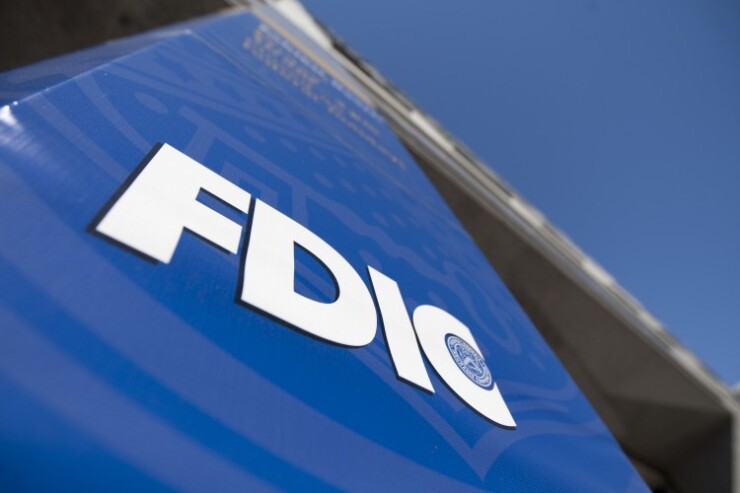
The Federal Deposit Insurance Corp. Wednesday morning released a trove of correspondence between the agency and regulated banks regarding proposed cryptocurrency activities and relationships, documents that acting Chair Travis Hill said demonstrate the agency's resistance to approving such activities.
The cache of 175 semi-redacted documents are mostly made up of
"The documents that we are releasing today show that requests from these banks were almost universally met with resistance, ranging from repeated requests for further information, to multi-month periods of silence as institutions waited for responses, to directives from supervisors to pause, suspend, or refrain from expanding all crypto- or blockchain-related activity," Hill said. "Both individually and collectively, these and other actions sent the message to banks that it would be extraordinarily difficult — if not impossible — to move forward. As a result, the vast majority of banks simply stopped trying."
Hill said that certain
"Upon becoming acting chairman, I directed staff to conduct a comprehensive review of all supervisory communications with banks that sought to offer crypto-related products or services," Hill said. "While this review remains underway, we are releasing a large batch of documents today, in advance of a court-ordered deadline of Friday. Our decision to release these documents reflects a commitment to enhance transparency, beyond what is required by the Freedom of Information Act, while also attempting to fulfill the spirit of the FOIA request."
The FDIC in 2022
"Crypto-related activity does not include providing deposit account services to crypto-asset automatic teller machine operators, providing deposit accounts used for the business operations of, or processing ACH payments for, crypto-related companies in which the bank does not hold/maintain the funds of the crypto-related companies' customers, or making loans to crypto-asset companies not collateralized by crypto-assets," the FDIC memo said. "However, crypto-related activity does include lending when crypto-assets are used or relied upon as collateral and, as noted above, it does include deposit accounts used to maintain stablecoin reserves."






